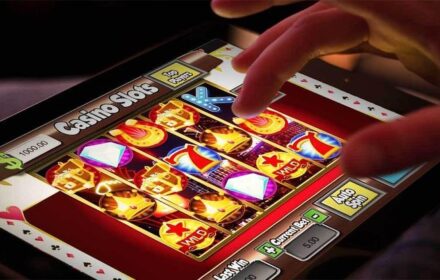The question of at what age one can play in online casinos is regulated not only by national laws but also by international standards of the gaming industry.
Age restrictions in casinos depend on the country, the type of gambling, and licensing specifics. Gaming legislation establishes basic rules, but in practice, there are often exceptions related to cultural, religious, and economic factors.

General Legal Framework
The minimum age in casinos is primarily determined by national legal norms. Most countries set the limit at 18 or 21 years, based on the understanding of adulthood and financial responsibility.
Restrictions apply to all forms of gambling — from lotteries and bingo to poker and live games. For operators, non-compliance with the law can result in significant fines and license revocation.
At What Age Can You Play in Online Casinos: Regional Differences
Regional specifics play a key role. In Europe, for example, the age for gambling in most countries is 18, but in Greece and some cantons of Switzerland, it is raised to 21.
In the USA, rules depend on the state: in Nevada — 21, and in some Indian reservations — 18. Asia presents an even wider range: Macau accepts players from 21, Singapore — from 21, and the Philippines allow participation in online games from 18.
Permissible Age for Gamblers and Its Significance
Knowing at what age you can play in online casinos helps avoid law violations and sanctions. For gamblers, not adhering to age restrictions can result not only in account blocking but also in administrative liability. Operators apply strict identity verification, requiring a passport or equivalent document to confirm age.
Examples of Age Norms in Different Countries
In global practice, several characteristic groups of countries can be distinguished based on the approach to the minimum gambling age:
- 18 years — Australia, UK, Canada (in some provinces), Germany, Philippines;
- 21 years — USA (most states), Macau, Singapore, Greece, Lithuania.
This classification shows that legislation is based on historical and cultural factors, not just economic considerations.
Age Restrictions in Casinos and International Travel
A traveler familiar with the age requirements for playing in online casinos in a specific country can plan participation in games without risking rule violations. For example, in South America, Argentina has a minimum age of 18, while Uruguay has 21. Requirements vary in Africa: South Africa allows from 18, whereas in some North African countries, access to gambling is completely prohibited.
Gaming Formats and Age Threshold
Different types of games may have their own limits. Lottery is often available from 16 in some European countries, while poker and roulette require reaching the standard gambling age. In some countries, bingo is considered low-risk entertainment and is allowed from an earlier age, but the online format is equated to full-fledged gambling.
Key Rules for Players
For safe participation in gambling, it is important to consider not only national legislation but also the specific operator’s conditions. Online casinos often add their own requirements, which may exceed state norms. Key points to consider when choosing a platform include:
- checking the operator’s license and jurisdiction of operation;
- studying the verification conditions and list of required documents;
- clarifying the minimum age in the casino set on the platform;
- availability of separate rules for different types of games;
- monitoring changes in legislation in the country of residence.
Compliance with conditions helps avoid conflicts with the administration and protect personal data.
Exceptions and Special Cases
In global practice, there are situations where the answer to the question of at what age one can play in online casinos is determined not only by law but also by the player’s status.
For example, in some Asian countries, citizens under 21 are not allowed in gambling halls, but foreign tourists can participate from 18. In certain jurisdictions, participation in charity poker tournaments from 16 is allowed, provided that all funds are directed to public needs.
Responsibility for Violating Age Restrictions
Players who violate the rules may face blocked winnings, account closure, and fines. In the USA and Canada, such actions are considered offenses with possible legal action.
In Europe, violations are more often punished administratively, but stricter measures are applied in repeated cases.
Varieties of Gambling Games and Age
Each category of entertainment has its own age requirements:
- lottery — from 16 to 18 years, depending on the country;
- bingo — from 16 in offline format, but from 18 online;
- poker — from 18 in most countries, from 21 in certain jurisdictions.
This differentiation shows that operators focus on the potential risk level of each game.
Operator’s Role in Compliance with Norms
A licensed casino is required to identify the player to ensure compliance with the age requirements for playing in online casinos in their jurisdiction. Modern platforms use automated document verification systems and may request video calls with a manager to confirm identity if suspicions arise.

Conclusion
Understanding at what age one can play in online casinos requires consideration not only of formal rules but also of regional specifics. Age restrictions in casinos vary depending on the country, game type, and player status.
Compliance with norms allows legal participation in gambling, avoiding fines and blocks. Legislation and operator rules create the basis for a safe gaming environment where responsibility and legal literacy play a key role!
 en
en  ru
ru  de
de  ar
ar  es
es  hi
hi  fr
fr  nl
nl  it
it  pt
pt  el
el 












